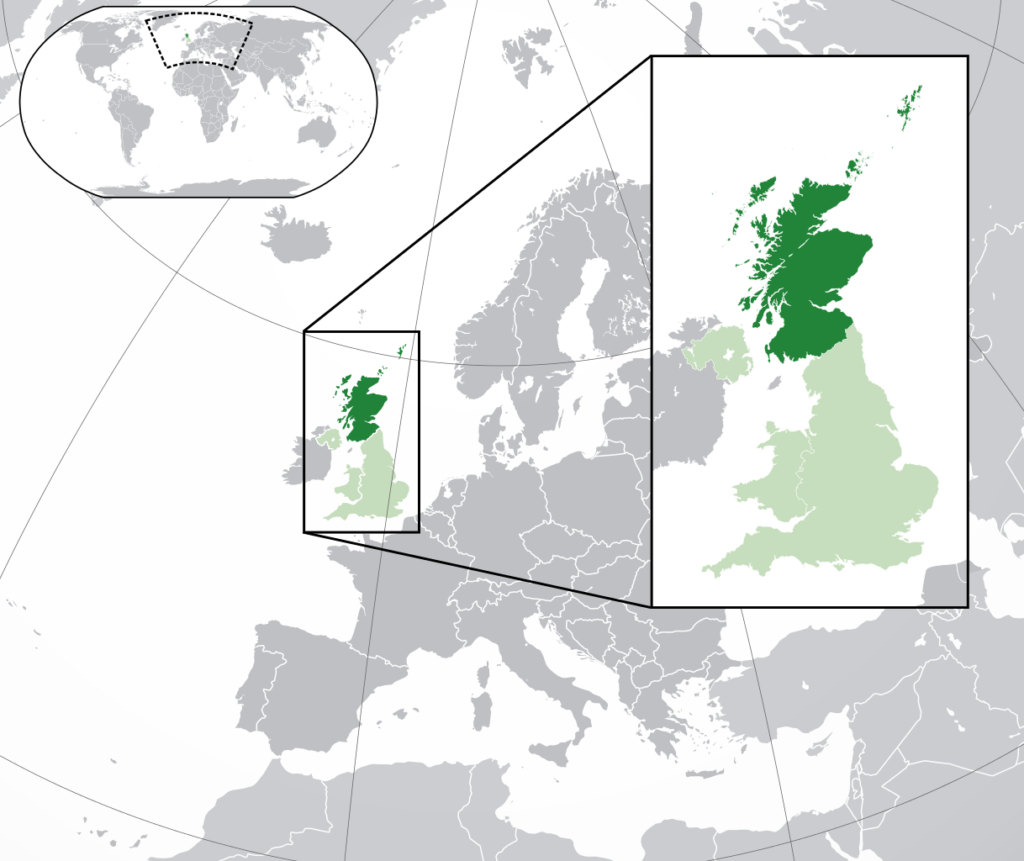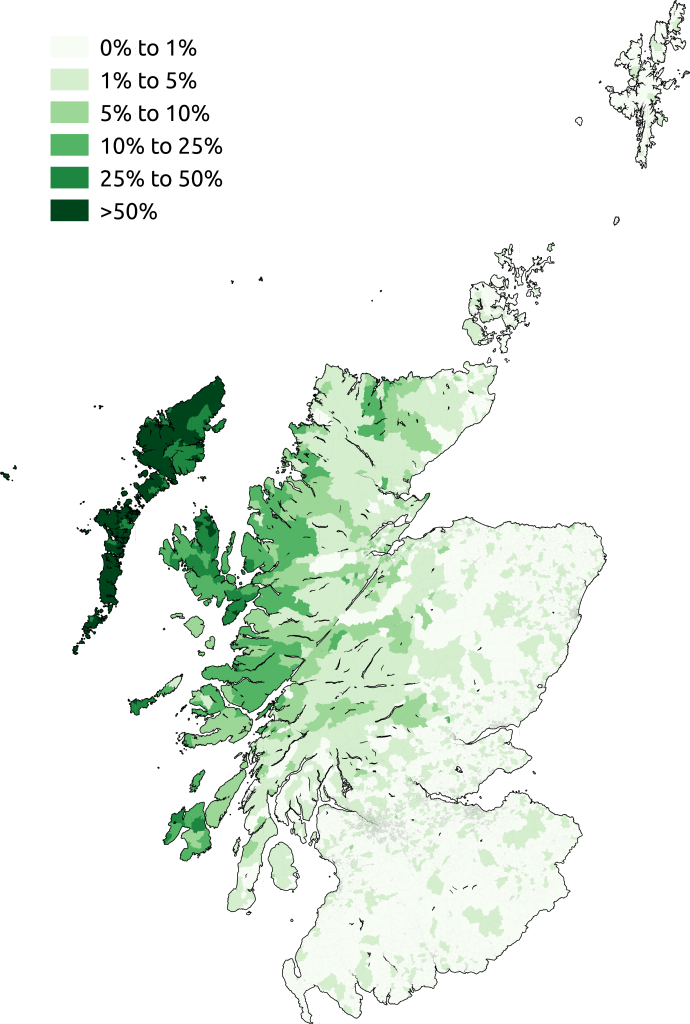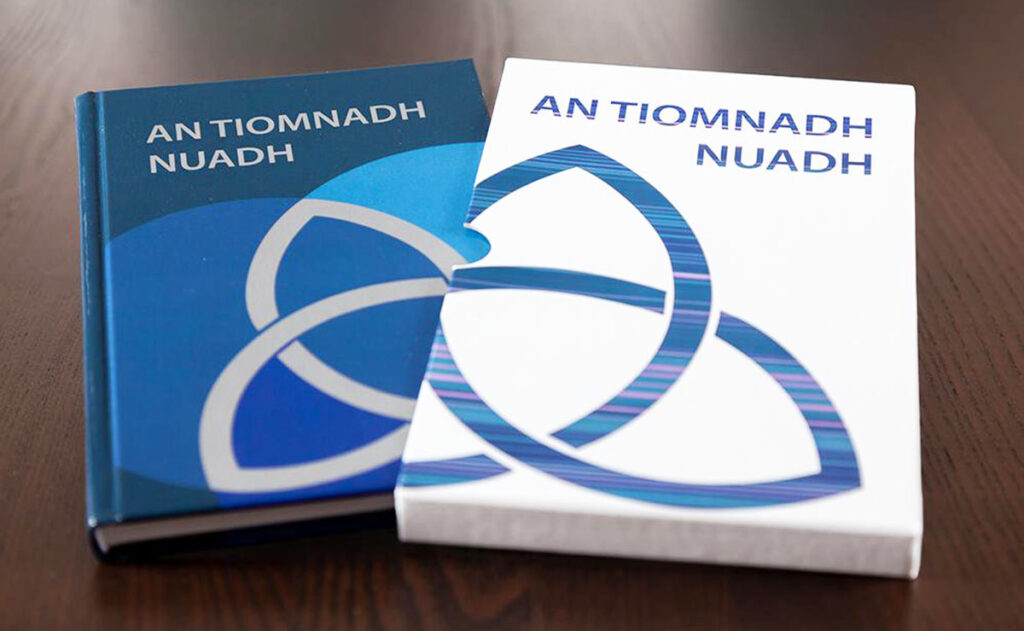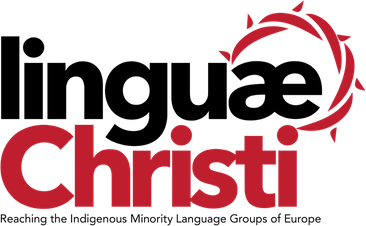Scottish Gaelic is one of the seven Celtic languages and is spoken in Scotland, albeit largely in western parts of the country. While the language was once spoken throughout Scotland, the largest concentrations of speakers are now found in the Outer Hebrides, an island chain off the western coast. Pockets of speakers can be found in the Highlands, Argyll and Bute, and within the city of Glasgow where Gaelic-medium schools have strengthened the community of speakers there.
Linguæ Christi’s work has historically centred on islands in the Outer Hebrides. Future plans include sending a team to study Gaelic at university in preparation for long-term work whilst developing a ministry on campus.
Quick facts for Scottish Gaelic speakers
| People Group in their language | Na Gàidheil |
| Language in their language | Gàidhlig |
| Language Affinity Group | Celtic Languages |
| Primary location where speakers live | Scotland and Nova Scotia, Canada |
| Primary dialects | Mid-Minch Gaelic, Canadian Gaelic, Hebridean Gaelic, Argyll Gaelic |
| Trade language | British English |
| Number of speakers | 55,000 fluent speakers in Scotland, with over 30,000 other speakers with varying levels of proficiency. 1,300 fluent speakers in Nova Scotia, Canada |

Attribution: Blank map of Europe (with disputed regions).svg: maix (talk)derivative work: Alphathon /’æɫfə.θɒn/ / CC BY-SA

Attribution: SkateTier / CC BY-SA
Examples of Scottish Gaelic speech and song
The Bible in Scottish Gaelic

The earliest translations of the Bible into Scottish Gaelic began in the late 18th century and finished in the early 19th century. In preceding years, Gaels in Scotland had used Irish translations due to the similarity between the two languages. The Psalms in Scottish Gaelic were also widely available prior to complete editions of the Bible, and today churches continue to sing the Psalms in metrical form.
A revision of the first completed version of the Bible in Scottish Gaelic was published a century later in 1902 and in the late 20th century orthographic revisions of this edition were published. In 2008 the Scottish Bible Society began an interconfessional project to present the Scriptures using modern vocabulary, and this edition is available to Scottish Gaelic speakers today.
Linguæ Christi and Scottish Gaelic speakers
Na Gàidheil are one of two indigenous minority language groups in Europe with a history of evangelical churches. Despite this tradition, there are significantly fewer believers and churches now in Scottish Gaelic. In the past Linguæ Christi has fielded short-term and mid-term teams to the Outer Hebrides, with the last team visiting during the summer of 2019. In recent months there has been renewed interest among churches in Scotland to support Scottish Gaelic-speaking initiatives, though the COVID-19 pandemic has interrupted this discussion. This interest, along with the work to complete a new, modernised translation of the Bible, appears hopeful for the Gospel among Na Gàidheil.
Linguæ Christi would like to send a team to a university where Scottish Gaelic speakers often study in order to begin language acquisition, but also to begin work on an oral strategy to reach Scottish Gaelic speakers and to join in campus ministry work. Possible team members could include Scottish Gaelic-speaking believers; English-speaking believers in Scotland; and cross-cultural workers from elsewhere.
Opportunities to join us in Scotland

29 May – 28 June 2021

